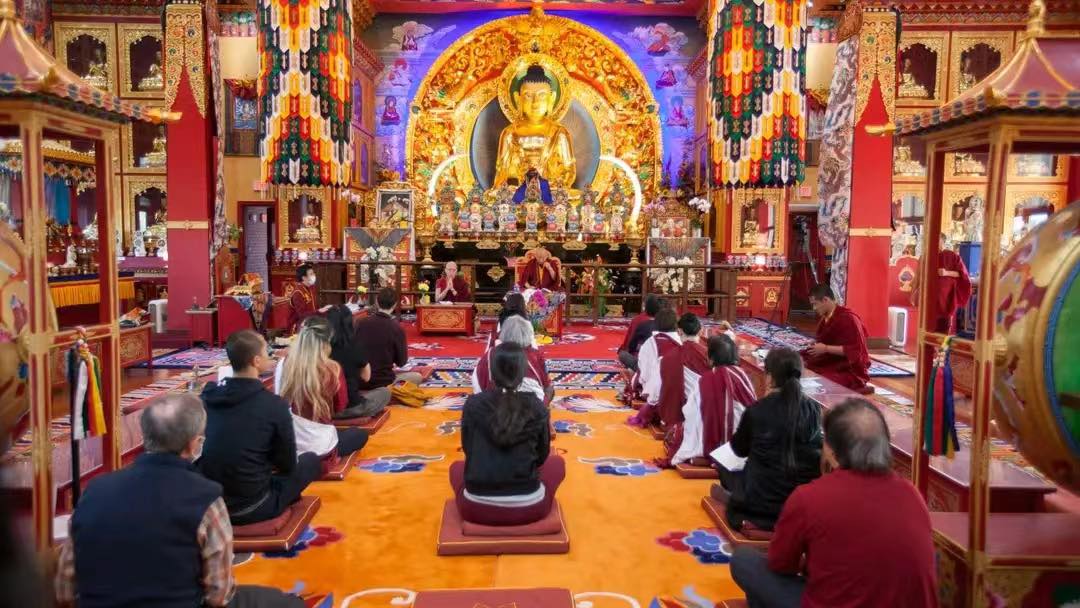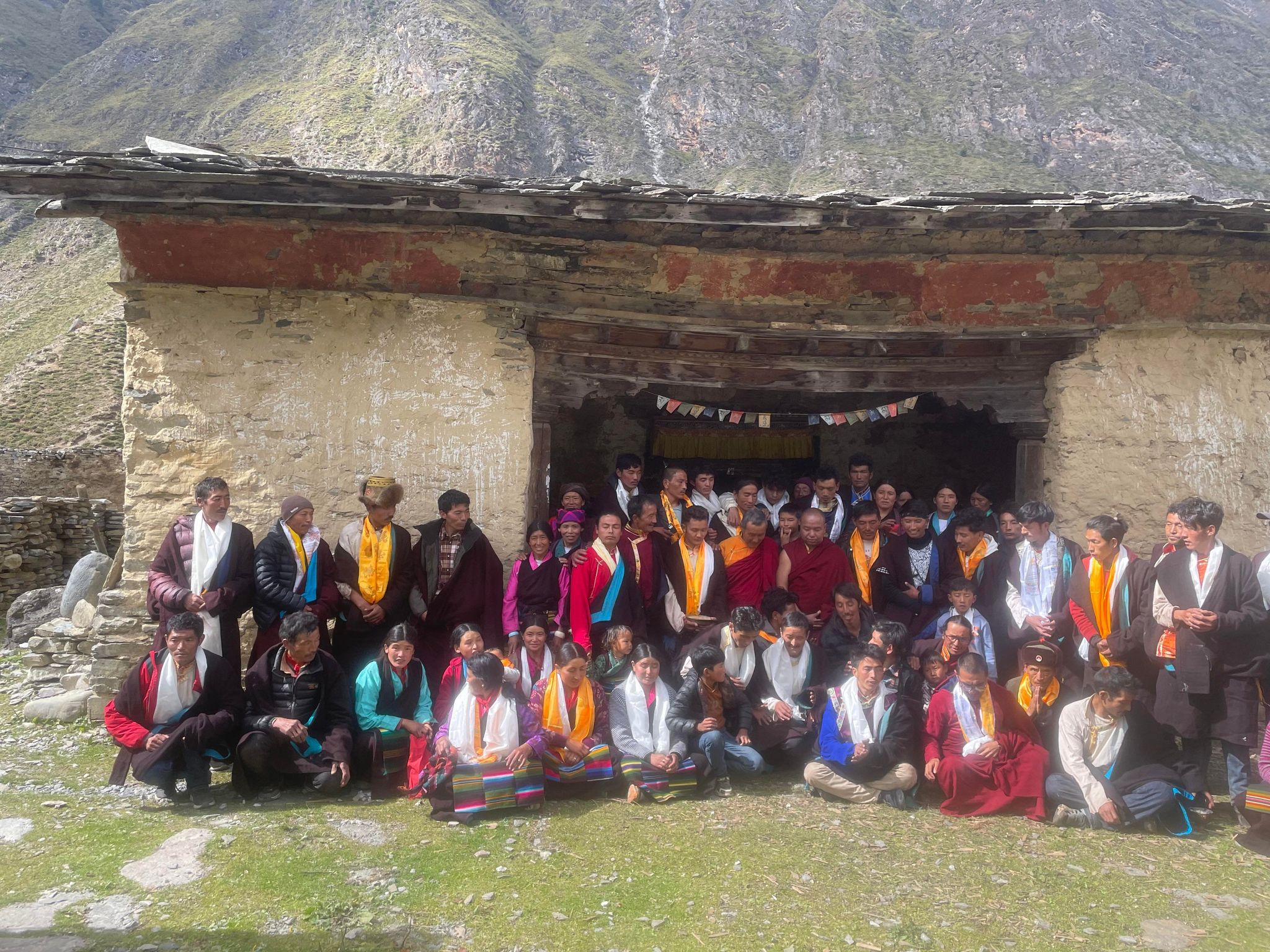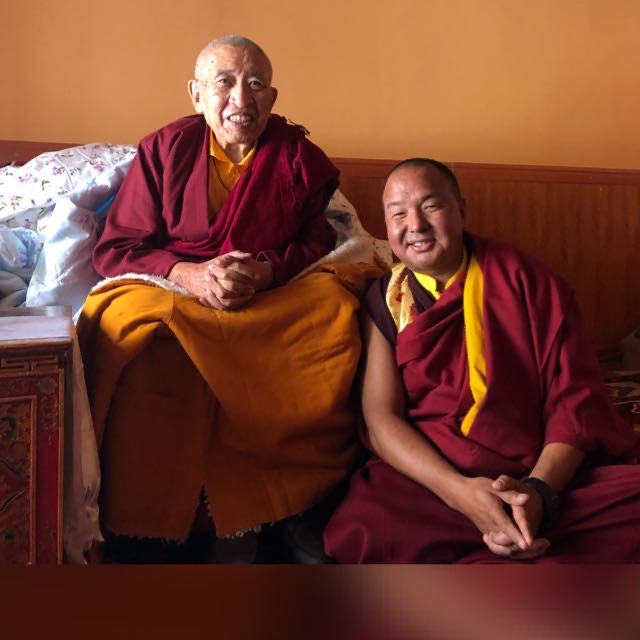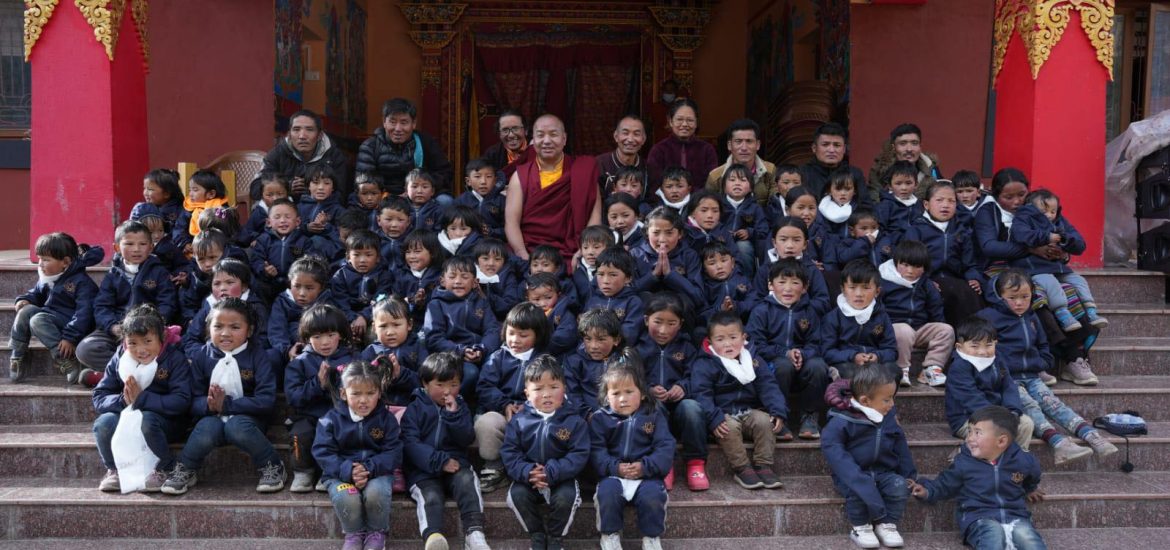“I was born in the Himalayas, in a place called Tsum on the border between Nepal and Tibet,” reflects Dungse Lama Pema during my call to him. He is currently at the Thrangu Monastery in Vancouver, where he serves as director. “Amidst the blessings and trials of nature, I learned to plant potatoes and barley wheat, chop wood, and cook. In the West, young people start off with great comfort, access to facilities, and luxury. Yet in the past few years, I have noticed how people look so tired and listless compared to when we were younger, before smartphone technology and social media took over society. We were more robust back then.”

When at the center in Vancouver, which was founded in 2010, Lama holds weekend classes and a weekly course on Seven Point Mind Training, and has also founded the Manjusri School for young people. Lama observed that 2019–21 was a difficult period, during which the center was closed and classes held on Zoom. While classes kicked off again last year in 2022, Lama’s sessions were still filled with people who felt deep sadness and turmoil, from professionals facing a rapidly changing workplace and economic difficulties to old people experiencing loneliness thanks to protracted isolation at home. Young people are facing an especially difficult time thanks to the rapid changes in technology and the dominance of social media.
“Overwhelmingly, anger and division are what young people come away with on social media apps, as well as jealousy when they go on Instagram and TikTok and see curated sights of wealth, beauty, and fun. Social media makes them tired and mentally exhausted. The jealousy and anger they feel inside has no productive outlet, and they manifest them in the real world.” To personally moderate the incredibly rapid changes that have overtaken society in just the last few decades requires some degree of discipline. “The attachment to short-term pleasure feels much more enjoyable than discipline. Tell someone to meditate for half an hour and they will look very unhappy. But tell them that we are going to a bar, to party, or enjoy some other fun thing for a whole day, and their whole expression will brighten. Yet after these indulgences, I always have people coming to me saying how guilty and empty they feel.”

Suffering is intrinsic to life, and the Buddha himself said that we are born into samsara to suffer as our natural destiny. “We are born crying, aren’t we?” asks Lama. Seeing things with such clarity is not an invitation to negativity. Indeed, if young people are turning to fatalistic thinking and pessimism, Lama believes that it is critical to first emphasize the rarity and preciousness of human life, in true Buddhist tradition. He sees it as critical to help people feel energized and galvanized again, to remind them that their time, far from something to burn or waste away, is precious and irretrievable from moment to moment. The next step is to empathize with people and recognize that there is too much suffering in the average mind, and when there is no awareness about a better way (and no discipline to try it), people navigate their suffering in easy but unproductive ways: escapism, drugs, drinking, and, at worst, suicide.
Yet it is not enough to exhort and exert parental authority. Lama offers the example of one of his students’ sons, who was a shut-in and spent his days gaming at home. This was the textbook example of a young person withdrawing from the pressures and difficulties of modern life. At the end of his tether after many arguments, the father turned off the Wi-Fi in the house, only to find that the son committed suicide shortly afterward.

“Yes, so many of us are scrolling on our iPads and iPhones. We’re always connected to the Internet yet disconnected to each other. But this is our situation. We must treat boys and girls and young men and women with respect. We have to empathize with their struggles instead of just imposing the way we see things on them. We should see our sons and daughters as agents of their own lives, and explain to them why something is good or bad. Honesty also means taking into account the diversity of their problems, like job loss, depression, and so on. Life is constantly in flux, and you will never be on a high forever, but neither will you be down forever.” As for the adults, the best way to get back on track (and be able to assist others) is to solve our problems together. “This begins with sharing our troubles with each other,” said Lama. “We must engage in dialogue. Don’t keep things inside and don’t withdraw; it only leads to further loneliness. Adults have a lot of work to do when it comes to this.”
In 2023, people remain too busy, immersed in work and technology. Our world has changed so much in a few decades. But our biology, the product of millions of years of evolution, as well as our samsaric condition, the result of endless rebirths, has barely caught up. We have not changed much inside, so our only hope is to guide each other with energy and hope, along the Noble Eightfold Path and journey toward Buddhahood.


